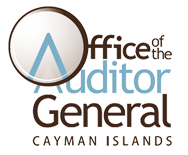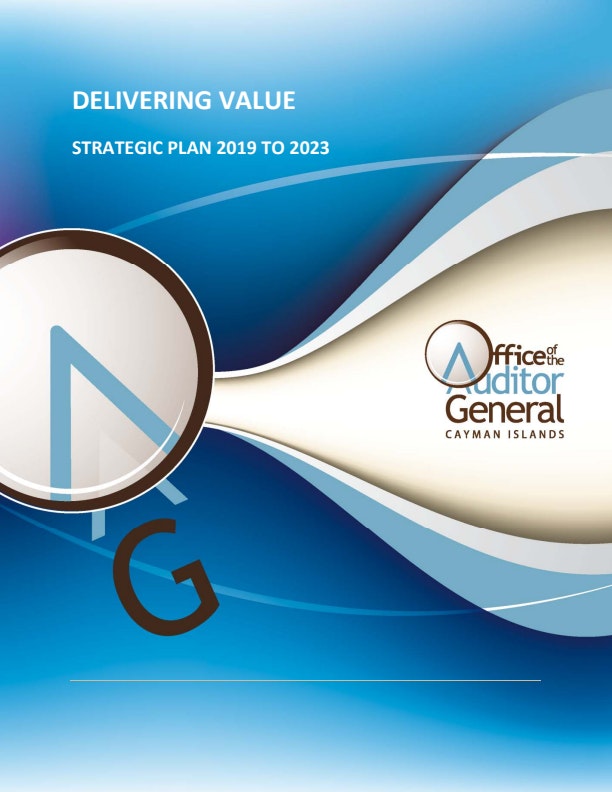What We Do
We apply the unique perspective of public audit to help the Parliament and Government drive lasting improvement in public services. The OAG scrutinises public spending on behalf of Parliament, helping it to hold Government to account and helping public service managers improve performance and service delivery.
To support this, our audit work has two main strands:
- We audit the consolidated financial statements for the entire public sector, and the financial statements of all the government ministries, portfolios, independent offices, statutory authorities and government companies and report the results to Parliament.
- We also conduct performance audits to look at how government projects, programmes and initiatives have been implemented. They contain recommendations on how services can be improved.
Strategic Plan
Our work programme is focused on four areas under Strategic Plan 2019-2023.
- Strengthening the accountability, transparency, integrity and delivery of public services through high-quality audits
- Demonstrating ongoing relevance to the people of the Cayman Islands, the Parliament and other stakeholders
- Encouraging improvement through leading by example
- Continuously developing our people
Our role and responsibilities
The overarching role and powers of the Auditor General are set out in the Cayman Islands 2009 Constitution which requires that there shall be an Auditor General who shall have
“The power and responsibility to audit the public accounts of the Cayman Islands and the accounts and financial dealings of all authorities, offices and departments of Government and of all courts, and power to undertake value for money investigations in respect of the activities of such authorities, offices and departments”.
The Constitution clearly sets out the mandate of the Auditor General and the office to carry out both financial and performance audit work. It also clearly provides for the independence of the Auditor General when it further states that
“In the exercise of his or her functions, the Auditor General (and any person acting on his or her behalf in the exercise of those functions) shall not be subject to the direction or control of any other person or authority, save that the Auditor General is answerable to the Public Accounts Committee of the Parliament and must attend upon the Committee at its request.”
The role, and responsibilities of the Auditor General and the Office are also further prescribed in the Public Management and Finance Act (PMFA) which sets out the Auditor General’s powers and duties, independence, reporting responsibilities and right to access information. It also sets out how the OAG is held accountable. With respect to the Auditor General’s powers and duties these are prescribed under section 60 (1) and are:
(a) conduct audits required under this Act.
(b) on his own initiative or at the request of the Parliament or of any of its committees or subcommittees, conduct investigations into-
(i) the management of executive financial transactions;
(ii) the financial management of any ministry, portfolio, statutory authority or government company or the Office of the Ombudsman and
(iii) the economy, efficiency and effectiveness with which any ministry, portfolio, statutory authority or government company the Office of the Ombudsman, has used its resources in discharging its functions;
(c) at the request of the Parliament or of one of its committees or subcommittees, provide advice and assistance to the Parliament or to any of its committees or subcommittees; and
(d) if he is authorised in writing to do so by the Governor in the public interest, conduct investigations into the financial management or affairs of persons, companies and bodies other than those referred to in preceding paragraphs.
Who we are accountable to
The Auditor General is accountable to the Parliament for the performance of the OAG, both in terms of meeting its mandate and its use of resources. As an independent officer of the Parliament, the Auditor General, and by extension his Office, are not accountable to the Government, either in terms of the work they carry out or the resources they use to deliver their work.
The accountability to the Parliament is exercised through the Public Accounts Committee (PAC), to whom the Auditor General reports the outcomes of his audit work. Under the Constitution the Auditor General is required to make at least two reports a year to the Parliament on his work, and under the Public Management and Finance Act (PMFA) he is required to make one general report a year on the outcomes from his audits.
The provisions for setting the budget of the OAG, and the submission of the OAG's annual report and audited financial statements, are clearly set out in sections 66 to 69 of the PMFA. The PAC, and not the Government, is responsible for:
- discussing and agreeing with Auditor General the budget for the OAG;
- granting appropriations to the OAG; and
- submitting them to the Ministry of Finance for inclusion in the plan & estimates.
However, in practice the Ministry of Finance rather than the PAC has set the budget and the appropriations for the OAG. This issue, along with the application of some of the provisions in the PMFA and the Public Service Management Act (PSMA), enable Government to constrain the financial and operational independence of the OAG, if it wishes, through the withholding of resources, reinforcing perceptions both within and outside Government that we are in fact a part of Government and not independent. Our strategic plan has as one of its strategic objectives the need to enhance the independence of the OAG to ensure its financial and operational independence from Government.
The Auditor General is required to submit the OAG's annual report, including the audited financial statements to the PAC by 31 May each year for their scrutiny. The OAG's financial statements are required to be audited by independent auditors appointed by PAC. The OAG's current auditors are HLB Berman Fisher. The PAC tables the OAG's annual report in the Parliament at which time it becomes a public document.

